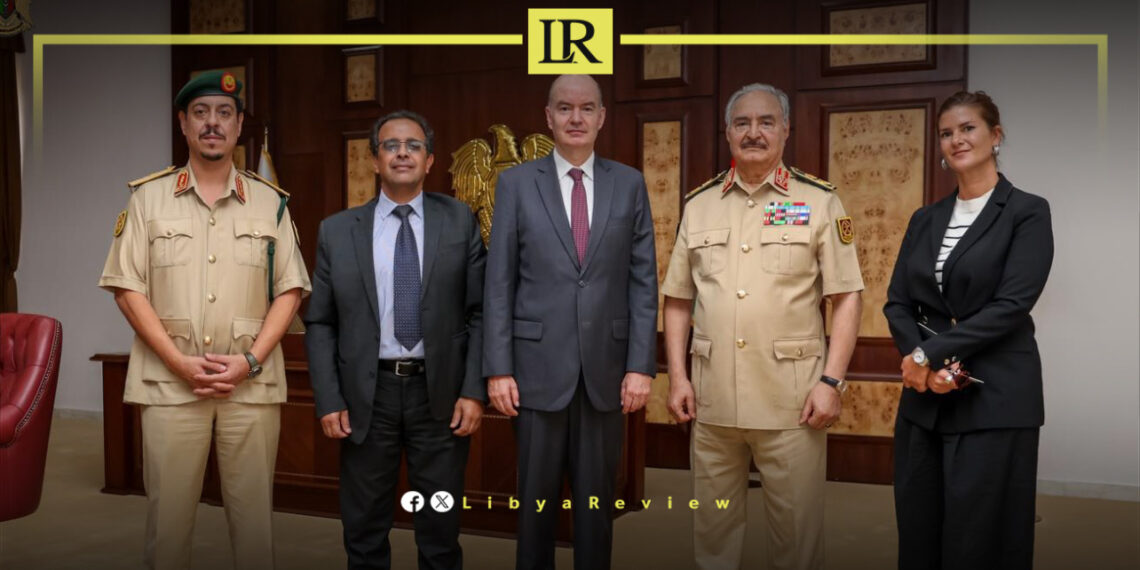On Sunday, the General Commander of the Libyan National Army (LNA) Field Marshal Khalifa Haftar met with Josef Renggli, the Swiss Ambassador to Libya, to discuss the evolving situation in Libya.
The meeting, held at the LNA’s General Command headquarters in Benghazi, focused on strengthening bilateral cooperation between Libya and Switzerland across various sectors, according to a statement from the LNA’s Media Office.
The discussion explored avenues for mutual collaboration aimed at advancing the shared interests of both nations, particularly in areas such as humanitarian aid, economic development, and security.
This diplomatic engagement comes amid a fragile political climate in Libya, a country still grappling with instability after more than a decade of conflict following the 2011 overthrow of Muammar Gaddafi. Since then, Libya has been divided between competing governments, with Haftar’s forces controlling much of the oil-rich east while the western region is governed by the Government of National Unity (GNU) based in Tripoli.
Haftar’s role remains pivotal in determining Libya’s future. As a key figure in the eastern part of the country, his forces have been engaged in power struggles against western factions, making him a central figure in Libya’s political and military landscape.
Switzerland, a nation renowned for its neutrality, has shown an increasing interest in supporting the peace process in Libya. Ambassador Renggli’s meeting with Haftar signifies Switzerland’s intention to engage with all key Libyan stakeholders. By fostering dialogue with Haftar, Switzerland positions itself as a potential mediator in the ongoing political crisis.
Switzerland’s involvement is likely to focus on humanitarian efforts, as it has played a significant role in providing assistance to Libya’s displaced populations and contributing to infrastructure rebuilding. Furthermore, Switzerland may seek to enhance its cooperation with Libya in areas such as trade, investment, and post-conflict reconstruction, areas that could provide economic and social benefits to both countries.
Libya’s protracted instability has been a major challenge for both its citizens and the international community. Despite several attempts at peace negotiations brokered by the United Nations and other international organizations, the country remains divided, delaying critical progress toward national elections and long-term peace.


